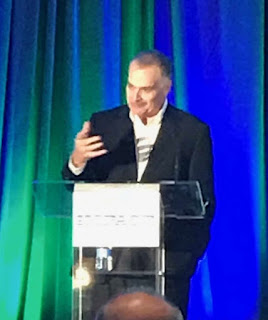The Power of a Conversation

I grew up in Chicago in the 1970's, and even in a massive city we had our choice of just a few major media stations. WGN was a staple on television and radio. I used to get up long before the sun and there was nothing on television except for the Farm Report. Orion Samuelson and Max Armstrong were familiar figures on radio and TV. I'd listen to or watch them daily, even though I had no connection to farming. I was a kid, and it was something live and local. Years later I run into Max at national conferences and I always appreciate his stories. Today at the Independent Professional Seed Association in Indian Wells, CA, he told a great story I have to share. Max Armstrong shares an amazing story about the power of personal connections in telling the story of agriculture. He was uber-ing from the airport to the hotel. He and the driver carried on a conversation, and the driver mentioned that he had already drive...
